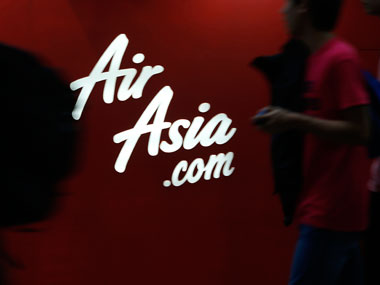New Delhi: A low-cost airline once got permission from aviation regulator DGCA and began charging for preferred seats on its aircraft. But the regulator banned this practice soon after. Reason?
The airline–one of the largest in the country now–made all seats on its A320 aircraft ‘preferred’ and began charging extra.
How can something be ‘preferred’ if it is not limited?Globally, preferred seats are mostly those which have more leg room, like the front row seats or those next to emergency exits.
Here this airline, by charging for all the seats, was simply abusing a globally followed practice (not suprising as this happens very oftenin India) in order to make a quick buck.
[caption id=“attachment_702396” align=“alignleft” width=“380”] AirAsia charges passengers over and above ticket prices for everything - for every piece of check-in luggage, for preferred seats, for meals and for blankets. Reuters[/caption]
No wonder then that the regulator immediately banned all airlines from charging passengers for choosing seats and paying extra.
This was a few years back, when the low-cost carriers (LCCs) had just arrived in Indian aviation and such charges, which make up ancillary revenues for airlines, were unheard of.
But now, the debate over airlines raising revenues has been reignited with the impending arrival of ultra low cost airline AirAsia in India. AirAsia charges passengers over and above ticket prices for everything - for every piece of check-in luggage, for preferred seats, for meals and for blankets.
Impact Shorts
More ShortsWhen it begins operations later this year in the domestic market, wouldn’t there be a clamour for similar charges by other LCCs?
A source in DGCA said it was possible that airlines would imitate AirAsia’s model and seek permission to levy these charges.
“But airlines have just been talking about these, no one has made any formal request to the DGCA to look into this issue till now.”
These sources also said airlines such as IndiGo and GoAir already offer preferred seats with meals and this service is chargeable.
“What these airlines are doing very cleverly is charging for meals on board and offering preferred seats along with these meals. But they are not saying there is any separate charge for preferred seats. So we cannot take any action against them. Besides, we have not received any complaints so far.”
The DGCA may be turning a blind eye to these little peccadilloes by LCCs but very soon, it will have to form a policy over these issues since AirAsia will seek to levy these charges even in India.
Not just LCCs, even legacy carriers such as Jet Airways and Air India are waking up to the potential of ancillary revenues.
Jet is already charging for printouts of e-tickets and charging more per ticket cancellation. Air India is discussing a proposal internally to begin charging for hot meals, which until now are complementary with tickets on all classes of travel.
Jet had indicated earlier it would like to double ancillary revenues to 10 percent in two years by making seemingly insignificant services chargeable.
Recently, The Economic Times quoted Senior VP (planning and alliances) at Jet Airways as saying that his airline might levy a charge for passengers wanting an upgrade on seating class. The same story quoted experts as saying that IndiGo has over 6 percent income from ancillary services already.
But some areas remain a no-no still. No airline in India can refuse water to a passenger on board. And unlike Samoa Air, which charges passengers by their weight and not by seat, Indian airlines are yet to arrive at such weighty issues.
And Ryan Air went several steps ahead on this cost saving and revenue enhancing mission last year when its CEO suggested that regulators allow the airline to remove last 10 seats on the aircraft and allow passengers to pay less for standing.
Yes, standing during a flight. As things stand now, Indian LCCs have not come down to making such preposterous demands.


)

)
)
)
)
)
)
)
)



